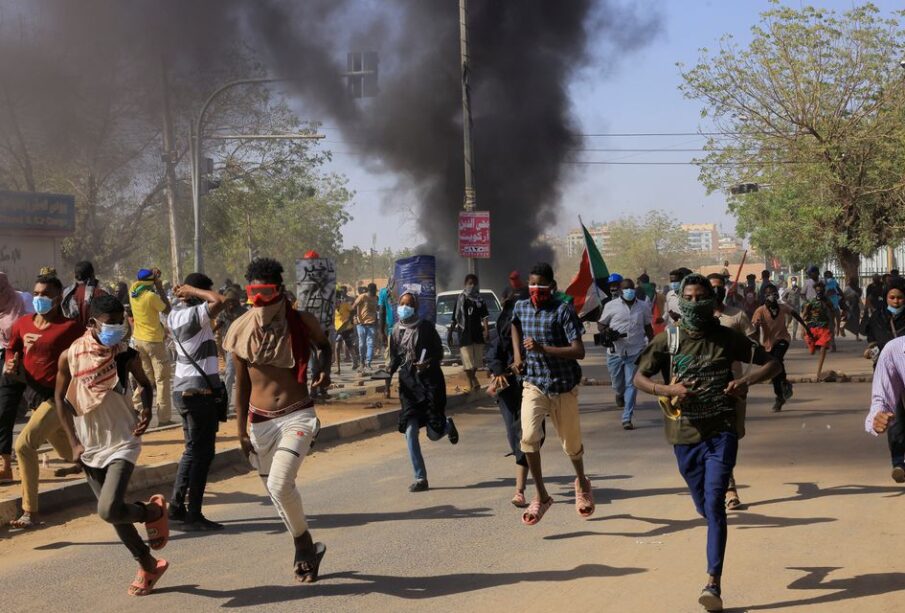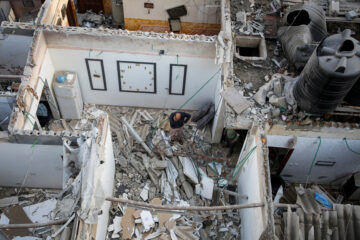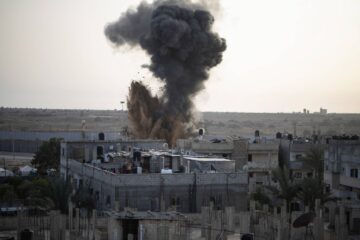Sudan protesters face tear gas, stun grenades on uprising anniversary
 Protesters march during a rally commemorating the fourth anniversary of the uprising that toppled former leader Omar al-Bashir in Khartoum, Sudan December 19, 2022. REUTERS/Mohamed Nureldin Abdallah
Protesters march during a rally commemorating the fourth anniversary of the uprising that toppled former leader Omar al-Bashir in Khartoum, Sudan December 19, 2022. REUTERS/Mohamed Nureldin AbdallahSudanese security forces used stun grenades and tear gas on Monday to disperse crowds of protesters rallying in Khartoum on the fourth anniversary of the uprising that toppled former leader Omar al-Bashir, a Reuters reporter said.
The protests in the capital come two weeks after the military leaders who staged a coup last year signed an outline deal with political parties to relaunch a transition towards democratic elections with international support.
The deal faces major challenges, including limited public backing for the civilian signatories and the deferral of contentious issues including transitional justice and reform of the security forces, analysts say.
Demonstrators, who called for civilian rule and justice over deaths during past protests, gathered in their largest numbers for several months on Monday, marching to within about 1.5km (1 mile) of the presidential palace.
Police with armoured trucks blocked their way, then chased them through the streets.
“There’s no immunity from trial for the soldiers. We want justice and civilian rule,” said Salah al-Fadel, a 34-year-old teacher protesting in Khartoum.
Police vehicles sprayed some protesters with water and used stun grenades and tear gas intensively, the Reuters reporter said. Rallies were also reported in other Sudanese cities.
Ahead of the protests, security forces had closed roads leading to the defence ministry and shut several of the bridges linking Khartoum with its adjoining cities of Omdurman and Bahri, where there were also demonstrations.
Since October 2021, when military leaders deposed a civilian-led government that had been set up under a power-sharing arrangement, more than 120 civilians have been killed by security forces at anti-military protests, according to medics.
Authorities have said that peaceful protests are allowed and that protest casualties will be investigated.
The uprising against Bashir, who had been in power for almost three decades, began in the northern city of Atbara amid a deepening economic crisis, and quickly spread to other parts of Sudan, raising hopes that the country could emerge from decades of isolation and authoritarian rule.
SOURCE: REUTERS









